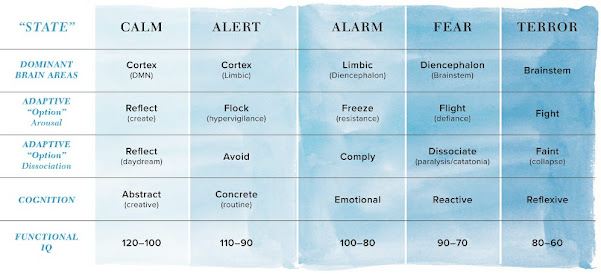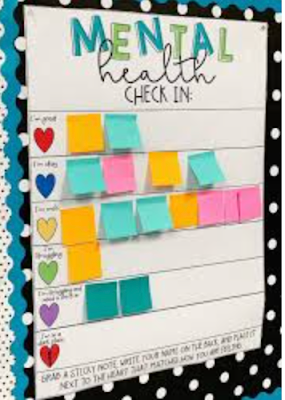Restorative Practice is a waka we're currently boarding at Te Māhuri Mānuka. As with any school, some staff are already seated and ready to go, others are tentatively finding their spot, and some are possibly hanging at the back of the line deciding if this is a journey they want to embark on.
Two day PLD sessions can be long and tiresome, often only made bearable with a good lunchtime spread and strong coffee. While the coffee on offer was devastatingly instant, the knowledge, skills, and absolute conviction with which this content was offered was the best I've seen in a long time.
Marg Thorsborne is the Restorative Practice guru, and an incredibly powerful facilitator. If ever you are offered the opportunity to listen to this wahine toa, take it. I was absolutely hooked from the moment Marg stood and acknowledged mana whenua, throughout all the quirky anecdotes from the coal face of her experiences, to the final moments when she sent us away to go forth and restore the ruptures.
Ideas taken from the day
CONNECT BEFORE CONTENT!
- Kids need to recognise their own feelings too.
- Interoception - sensing internal signals from your body. Helps you understand what's going on inside you.
- We need to move away from behaviourism - that behaviours are acquired through conditioning.
- Zero tolerance is nonsense.
- There is no 'one size fits all' model
- Stand downs allow breathing time and a break/reset (I don't see a problem with this if all other avenues have been exhausted).
- PB4L - contingent on 'good behaviour.' It's reward for compliance. Extrinsically motivated. Think Skinner (human behaviour conditioning) and Pavolv (animals for goodness sake!)
- If we're going to use PB4L, let's call it PC4L - Positive Culture or Climate for Learning.
- We are trying to create good habits in our young people. Neuroscience - practise literally changes your brain. "Perfect practice makes perfect!"
- It can take 28 focused repetitions to unconsciously competent at something. Nathan Wallace says 90!
- We want to bridge the gap between home and school. Expectations can narrow the gap. Kids learn 'code switching' - learn the rules and play by the rules.
- For teachers - Be authentic, be genuine. Allow vulnerability.
- Unattended ruptures cause the erosion of trust.
- Teach what shame and pride are in class!
- When the brain is in cognitive shock the rational brain shuts down, leaving the limbic (emotional brain) to say 'piss off' and the reptilian brain (stem) to go into fight/flight/freeze mode.
- Shame is feeling bad about yourself as a person.
- An acronym for easy relationship building
T - Touch (a pat on the back, for example)
U - Use the child's name
M - Make eye contact
S - Smile! - Use a check in system when kids arrive at school. Zones of Regulation is too broad!
- "Kids with trauma history don't need more punishment. And quite frankly, they don't need more stickers." - Dr Ross Greene
- Perfect practice makes perfect.
- Be curious, not furious!
- Bruce Perry - "States of Cognition"
- Lawrence Steinberg - neuro-science specialist
- Ross Greene - laggin skills - (already on that waka!)
- Marconi Union - "Weightless" Calming waiata - proven to decrease anxiety.
- "The boy who was raised as a dog." Brain function and trauma
- Brenē Brown - Ideas on shame.
- St Luke's Innovative resources
- Bruce Perry short clips from the handouts.
Restorative Practice - What does it look like?
Basic Sequence
- Telling the story of what happened (explanation).
- Hearing about the harm (and reaching a shared understanding).
- Acknowledgement of the harm.
- Making a plan to make things right (including follow-up).
Use the scripts - don't be afraid to have them with you if you are facilitating. You can say, "there are a lot of important questions I need to ask so we can make sure we have all the information needed to restore this relationship. I don't want to miss anything out..."
Pre-conference InterviewIntroduction -
Thank people for coming.
"What was going on for you when you did that?" (the person responsible)
- What is the pastoral nature of Team Leaders?
- Are we at risk of staff becoming neglectful? (indifferent/disengaged?)
- Do we need a Te Māhuri Mānuka brief sheet for parents and students (for more serious issues)?
- What warrants parent participation? Do we need a severity scale?
- Who is on the facilitation team? Are staff able to sit in on a RP hui? Who will run the hui?
- How can we ensure staff are getting info on what when down at a RP hui?
- What's our school vision for RP?



Thankyou for that wonderful summary of our PD Rovena. Great questions for going forward too! I am totally on the waka with this, as have seen it work in action. I have seen such positive results in my early practice. I have been reflecting on the 'Shame diagram' and being mindful of how shame affects actions with people- both students, staff and whānau. Nga mihi nui. Jane
ReplyDeleteIt looks as though you had a powerful experience with Marg, Rovena. I am so happy to see that you gained from the experience. She clearly hasn't lost it! It has been some years since I trained with Marg but it changed my practice in the way that I related to students and their relationship difficulties. I still find that the results are profound. Nga mihi
ReplyDelete